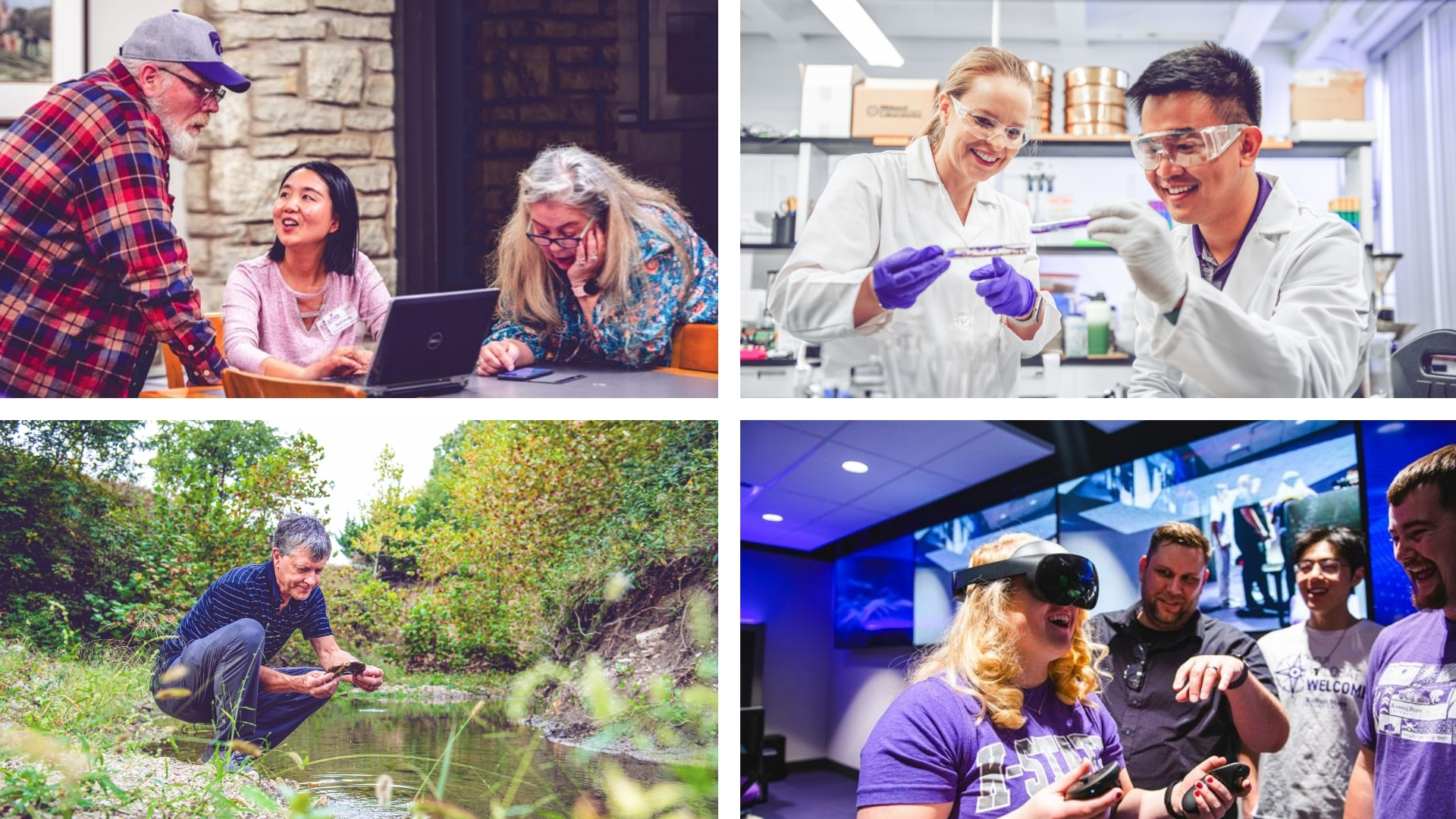K-State to tackle grand challenges in 2025
A new year is a turning point — an opportunity to both reflect on the year that has
passed, and to plan for the year ahead. It’s a chance to set goals, reach further
and aim higher.
As Kansas State University moves into 2025, it’s embracing a transformative approach
as the next-generation land-grant university through four grand challenges, known
as the K-State Opportunity Agenda. This innovative framework, created through the Next-Gen K-State strategic plan, brings together experts across disciplines to solve critical societal problems.
“Kansas State University has both an opportunity and a responsibility to solve the
challenges facing our state, our nation and our world,” K-State President Richard
Linton said. “But we need to do this in ways that challenge the status quo and even
our historical norms. This starts by establishing interdisciplinary areas of focus
that bring this institution together in new ways and provide the infrastructure to
uncover new and collaborative ways of thinking.”
1. Community Health and Well-Being
This grand challenge unites experts to build thriving communities. Their integrated
work focuses on healthcare availability, educational access, housing and childcare
to create healthier, more vibrant communities across Kansas.
“We’re a land grant, and that means we care about people,” said Tim Steffensmeier,
assistant vice president and director of engagement and outreach. “We have built this
university with relationships and people. So when you think about our research endeavors,
our teaching endeavors, and then our extension system, it puts us in a perfect position
to help, to be a piece of the equation of healthy, prosperous communities.”
2. Sustainability
K-State is combining expertise from agricultural scientists, environmental researchers,
engineers and other disciplines to address pressing environmental challenges in water,
air, energy, soil, climate change and biodiversity.
“The greatest environmental challenges facing our region today include the loss and
degradation of native grasslands, water quality and water quantity issues, and soil
health,” said Christopher Culbertson, professor and dean of the College of Arts and
Sciences. “All of these threaten human health, the viability of rural communities,
and agricultural production, which is the economic driving engine of the state and
region.”
This collaborative approach is especially crucial in Kansas, where water conservation
and sustainable farming practices are vital to the state’s future.
3. Global Food Security and Biosecurity
This area leverages K-State’s historic strengths in agriculture with cutting-edge
science. Researchers are developing new methods to increase food production while
simultaneously working to protect our existing food supply and human lives from diseases.
“We have foreign animal diseases that exist outside of this country that could be
devastating if they were here,” said Bonnie Rush, Hodes Family Dean of the College
of Veterinary Medicine and professor of equine internal medicine. “And we have emerging
diseases similar to COVID-19. We had a range of faculty involved that immediately
pivoted their work to a novel virus they’d never seen before and were able to answer
truly important questions about this particular new virus. And they are poised to
do that for whatever new emerging disease might come. Developing vaccines and preventative
measures are going to be really important.”
4. Enabling Technologies
As an R1 research institute, K-State is integrating advanced technology in areas like
advanced manufacturing, artificial intelligence, cybersecurity, aerospace technology
and more.
“K-State is enabling technologies through these main factors: corporate engagement,
industry partnerships, as well as developing new and innovative educational curriculums,”
said Michael Pritchard, K-State Salina associate dean of research and graduate programs,
and assistant professor, Department of Integrated Studies. “...Another consideration
from an ethical perspective is the harmful effects of the usage of technology, which
also leads to a greater need for transparency and accountability, especially when
you talk about things like ChatGPT, artificial intelligence.”
Learn more about the K-State Opportunity Agenda
Article information source: https://www.k-state.edu/next-gen/plan/opportunity-agenda/

